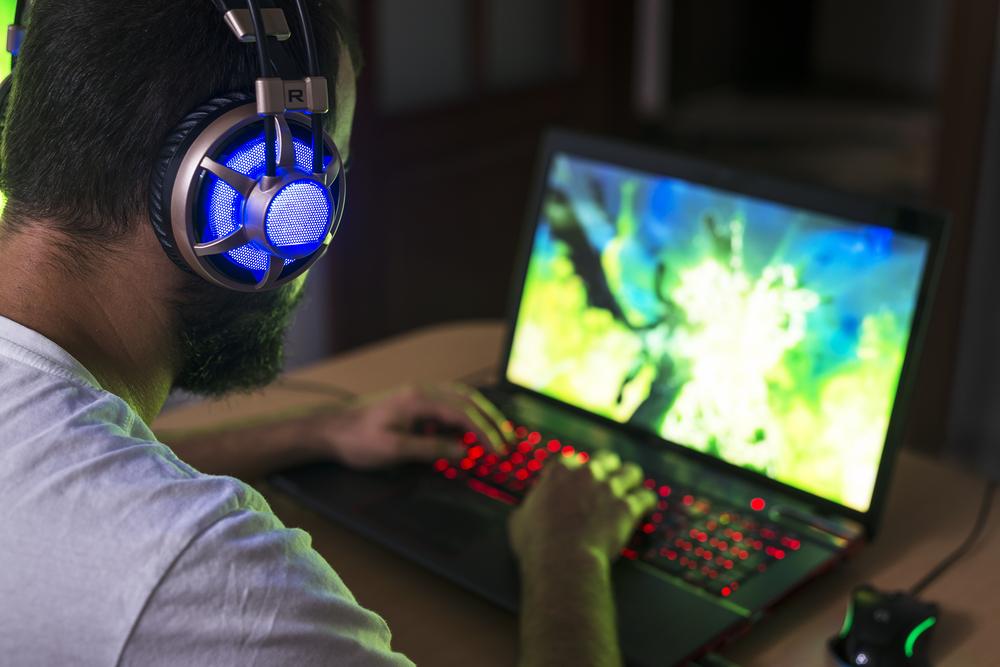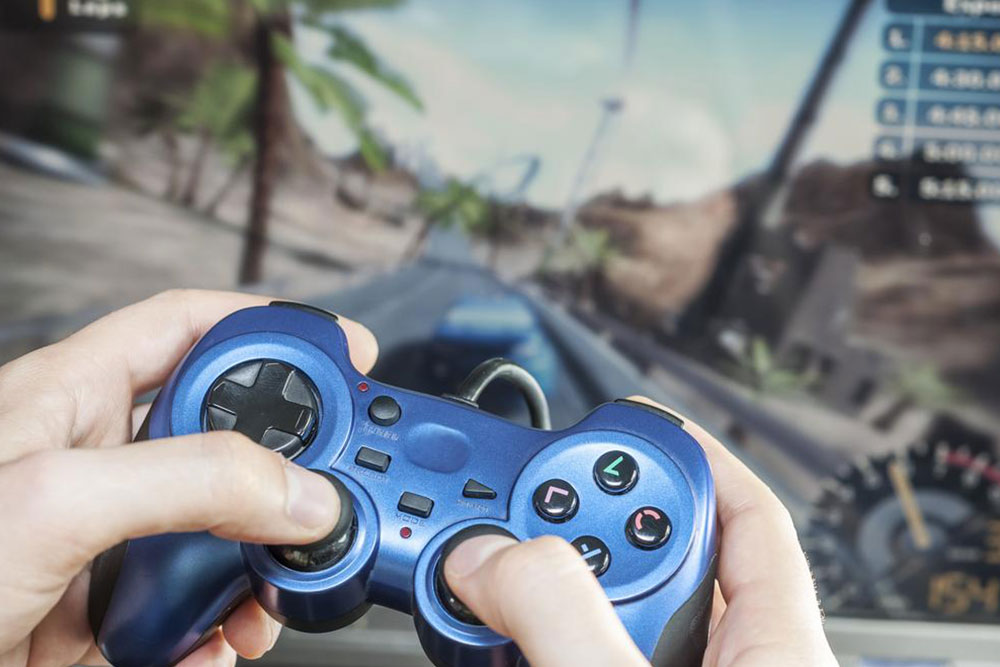Comprehensive Guide to Choosing the Perfect Gaming Laptop for Optimal Performance
Choosing the right gaming laptop involves understanding crucial features like storage, graphics, RAM, processor, and display quality. This comprehensive guide explores these components in detail, helping gamers find laptops that deliver top-tier performance within their budgets. From selecting powerful GPUs to choosing high-refresh-rate screens, learn how to make an informed investment in a gaming laptop that enhances your gaming experience and longevity.

Comprehensive Guide to Choosing the Perfect Gaming Laptop for Optimal Performance
In recent years, the landscape of gaming has evolved dramatically, leading gaming enthusiasts across the globe to seek out powerful, reliable, and visually stunning gaming laptops. While these portable machines may sometimes sacrifice a bit of portability for enhanced power and performance, modern gaming laptops have bridged the gap significantly, offering impressive features that cater to both casual gamers and dedicated eSports professionals. This comprehensive guide aims to shed light on the essential features you should focus on when selecting a gaming laptop, ensuring you make an informed decision that aligns with your gaming needs, budget, and future-proofing considerations.
Today’s gaming laptops come in diverse brands, models, and configurations, each boasting unique specifications and design philosophies. Whether you're interested in immersive VR gaming, high-resolution 4K gameplay, or fast-paced multiplayer sessions, understanding the critical components and features that drive gaming performance is paramount. From storage and graphics cards to processor choices and display quality, this article breaks down the key factors to consider, helping you find the ideal gaming laptop that delivers seamless gameplay and immersive visuals.
Understanding the Importance of Storage Options
Storage plays a vital role in gaming performance and experience. The two primary storage options to consider are Solid-State Drives (SSDs) and Hard Disk Drives (HDDs). SSDs are significantly faster than traditional HDDs, offering quicker game load times and smoother gameplay transitions. For gamers who prioritize speed, opting for a laptop with an SSD—preferably 240GB or larger—can make a noticeable difference. Many high-end laptops come with dual-drive configurations, combining an SSD for the operating system and frequently played games, with an HDD for storing larger game files and media libraries, providing an optimal balance of speed and capacity.
Moreover, recent advancements have led to the proliferation of NVMe SSDs, which offer even faster data transfer speeds, improving game loading times and system responsiveness. When choosing a gaming laptop, verify the storage configuration and consider models that support dual SSDs or larger SSD capacities for a future-proof setup.
Graphics Card: The Heart of Gaming Performance
Arguably the most critical component of a gaming laptop is the graphics card, also known as GPU. This hardware dictates how well a game renders visuals, handles high-resolution textures, and maintains frame rates during intense gameplay. NVIDIA's GeForce GTX series remains a popular choice among gamers, with options like the GTX 1050 Ti, GTX 1660 Ti, and the more powerful RTX series (such as RTX 2060, 3070, or 3080) offering enhanced performance and ray tracing capabilities.
For high-resolution gaming at 1080p or even 4K, a robust GPU is indispensable. While integrated graphics like Intel Iris Pro may suffice for light or casual gaming, serious gamers should look for dedicated GPUs with ample VRAM (video memory) to handle demanding titles smoothly. The choice between NVIDIA and AMD graphics cards depends on personal preference, budget, and specific game optimization; however, NVIDIA GPUs are generally preferred for their widespread support and superior driver updates.
Ensuring Adequate RAM for Seamless Gameplay
Memory, or RAM, is another crucial factor influencing your gaming experience. A minimum of 8GB RAM is essential for most modern games, but 16GB or more is highly recommended for multitasking, streaming, or running demanding titles. This allows your system to handle large game files and background applications without lagging.
For optimal performance, ensure the RAM operates in dual-channel mode, which doubles the data transfer rate between your memory and processor, leading to improved performance. Speed considerations such as DDR4-3200 or higher can also contribute to smoother gameplay, especially during intensive scenes.
Processor (CPU): Power and Efficiency
A high-performance CPU, preferably a quad-core or hexa-core processor like Intel Core i7 or AMD Ryzen 7, is essential in a gaming laptop. The CPU handles game logic, physics calculations, and overall system responsiveness. Modern CPUs with high clock speeds—above 3.0 GHz—ensure smooth gameplay, especially in CPU-intensive games and multitasking environments.
When selecting a processor, consider your specific gaming needs: gaming only, streaming, or content creation, as these tasks benefit from higher core counts and faster processing speeds. Pairing a powerful CPU with an efficient GPU creates a balanced system capable of handling the most demanding titles.
Display Quality: Visual Experience Matters
The display is arguably the most visually impactful component of a gaming laptop. Factors like size, resolution, refresh rate, and panel technology influence the visual quality and overall experience. A larger display, ranging from 15.6 inches to 17.3 inches, offers immersive visuals but may trade off portability.
Higher resolutions such as 1920x1080 (Full HD), 2560x1440 (QHD), or 3840x2160 (4K) provide sharper images, richer details, and better video playback. Additionally, a high refresh rate—preferably 120Hz or higher—ensures smooth motion during fast-paced gaming. IPS panels offer better color accuracy and viewing angles compared to TN panels, enhancing visual immersion.
Other Considerations for Gaming Laptops
Beyond core hardware, several additional features can elevate your gaming experience. Good-quality speakers with surround sound capabilities, such as those with dedicated woofers, can greatly enhance audio realism. A backlit keyboard, preferably customizable RGB lighting, not only improves usability in low-light conditions but also adds aesthetic appeal.
Responsive trackpads with multi-finger gesture support can offer increased convenience, though many gamers prefer using external mice. The laptop’s build quality and cooling system are also vital—adequate cooling prevents overheating during prolonged gaming sessions, maintaining performance and longevity.
Connectivity options such as multiple USB ports, HDMI, DisplayPort, and USB-C ensure compatibility with gaming peripherals, monitors, and VR headsets. Battery life, while often limited on gaming laptops due to high power consumption, is still worth considering if you plan to use your device on the go. Opt for models with larger-capacity batteries or efficient power management features.
Popular Gaming Laptop Models to Consider
When exploring options, several models stand out for their performance, build quality, and value. These include:
Alienware 13 R3: This model boasts Intel Core i5/i7 processors, an OLED display option, and NVIDIA GTX 1060 GPU. It’s known for being slim (around 0.81 inches thick) and lightweight, making it a portable choice. With options for up to 16GB RAM and 512GB SSD, it balances power and portability, though battery life may be somewhat limited.
Razer Blade Pro: Equipped with high-end specs including Intel Core i7, SSDs ranging from 512GB to 2TB, up to 32GB RAM, and NVIDIA GTX 1060 graphics. Its 17.3-inch display with 1920x1080 resolution offers vibrant visuals, all housed in a sleek, durable chassis measuring just 0.88 inches thick. Battery performance is moderate but acceptable given the specifications.
Other notable choices include ASUS ROG Strix, MSI Prostar, Sager, and Gigabyte gaming laptops. To get the best deals, keep an eye on seasonal sales, online discounts, and bundle offers. Always read user reviews, compare configurations, and verify hardware specifications before making a purchase to ensure you acquire a machine that meets your gaming expectations and future requirements.





